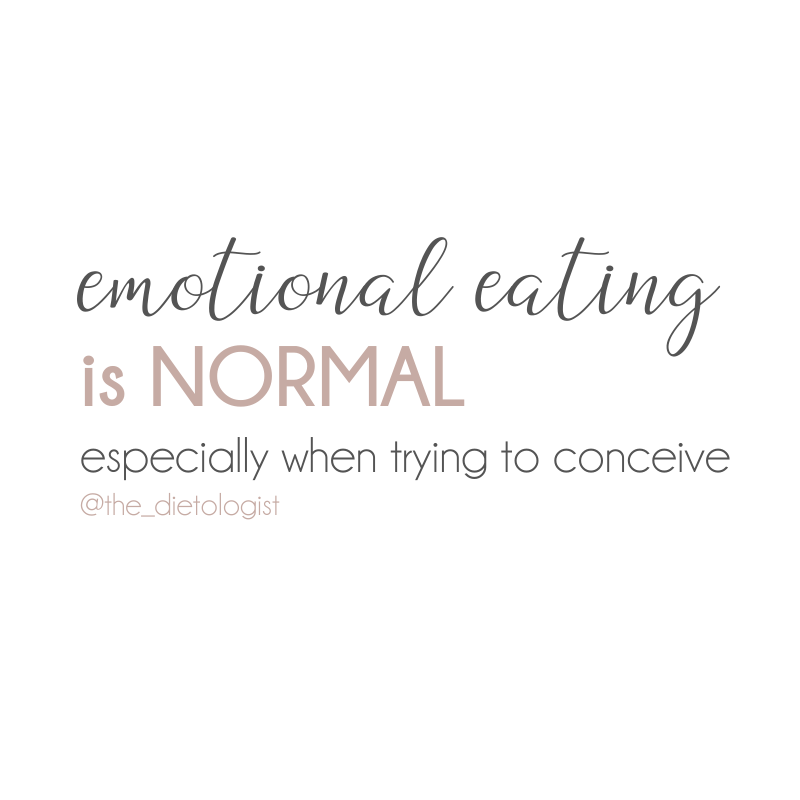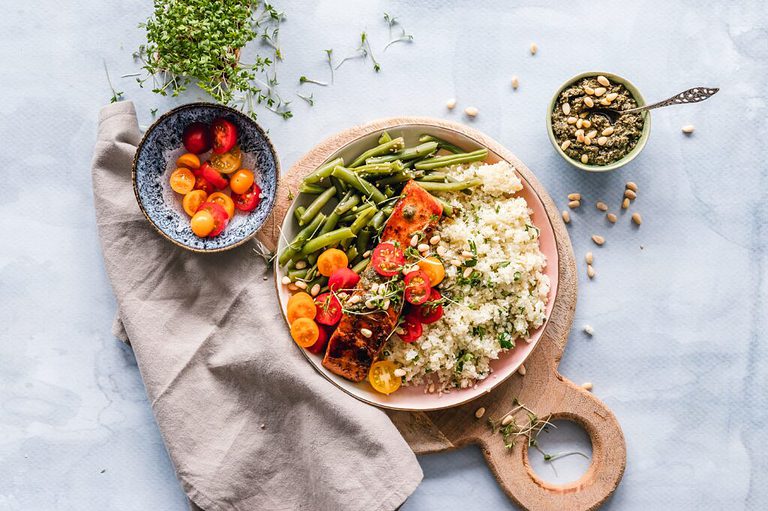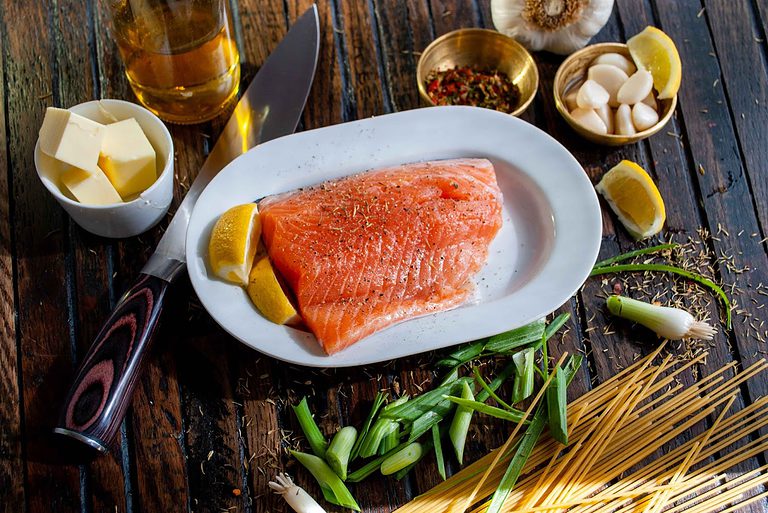Do you find yourself staring at the fridge, or running to the pantry whenever if you’re feeling stressed or down, on your fertility journey? It is most certainly a roller coaster of emotions and almost every woman I have met on their journey has struggled with their relationship with food at some point.
Perhaps, you are eating to feel relief from stress, anxiety, sadness, boredom, anger? Rather than because you are physically hungry?
If this sounds like you, then you may be caught up in something called emotional eating – which, by the way, is VERY COMMON, and completely normal. This is something that as a dietitian I come across almost daily in my clinic, so I am writing this blog to ensure that you know are you not alone!
Emotional eating is very common and completely normal
Comfort (or emotional) eating is something that we have all experienced – it is definitely a safer form of stress relief that turning to alcohol, drugs or gambling! So, if you’ve been experiencing some tough times whilst on your fertility journey, and you feel guilty for turning to food as a form of comfort, it’s time to leave that guilt behind!

What is Emotional Eating?
Emotional eating refers to the consumption of food (generally larger quantities), in response to feelings or emotions, rather than physical hunger. Whilst emotional eating is not a physical “disorder”, it is something that many individuals struggle with, particularly during times of stress or sadness (Nguyen-Rodriguez, et al., 2010).
Common causes of emotional eating are stress, negative feelings, boredom, and high dietary restraint – being too harsh on yourself to follow a ‘diet’ (Strien, et al., 2018).
In fact, I notice that most women struggle with emotional eating when they’re tired after a long day at work trying to be “good” with their diet all day, as soon as they can get alone with the pantry or fridge than it feels like all bets are off.
Leaving so many women feeling guilty or like “all my hard work restricting throughout the day was for nothing”. The fertility journey is often not as straight forward as it may seem, and this can cause us to feel stressed and guilty.

Emotional eating often leads to a cycle of guilt, shame and restriction again and feelings of instability, loss of control and weight gain, especially combined with all the hormones flying around during medicated IVF cycles or around your menstrual cycle!

Detaching food from your emotions is a slow and imperfect process, but definitely worthwhile!
How do we differentiate between emotional hunger and actual hunger?
Many people find it difficult to differentiate between the feeling of actual hunger and emotional hunger. In some, this can take a lot of work, and is more challenging than it sounds, particularly if you are someone who is regularly using food to fill an emotional need, which may temporarily satisfy but doesn’t tend to have lasting effects.

Here are some tips you can use to try to discern between emotional and physical hunger:
- Physical hunger comes gradually – you get a bit hungry, then hungrier and hungrier. Emotional hunger can appear as ‘urgent hunger’ – the need to eat right away!
- Physical hunger doesn’t discriminate between foods, and generally many types of food can curb it. With emotional hunger, you may feel the urge to reach for certain food (particularly energy-dense), this is worsened by ignoring your true physical hunger for too long. Just think when you go to the grocery store ravenous, which aisle do you end up in? I know you won’t find me in the produce section!
- Physical hunger will go away when your body is full and satisfied. Emotional hunger can often go beyond the point of fullness, where nothing seems to satisfy you.
My Top 3 Tips for Tackling Emotional Eating When Trying to Conceive
Use the HALT strategy
Before you run to the kitchen, take a minute and think, am I: hungry, angry, lonely, tired, feeling down? This is where you need to take a deep breath, slow down. Practicing mindful eating can help us get in touch with our hunger cues, and requires us to focus all of our attention on the eating occasion.

Check out headspace for some great tips!
Thanks to Fiona Sutherland APD for referencing this strategy in her Dietitian Connection webinar.
Don’t deprive yourself
Healthy eating is not ‘perfect’ eating.
Allow yourself to enjoy those foods you love, because depriving yourself of these foods will make you crave them even more – and typically overdo it when you finally get your hands on the so-called “forbidden fruit”.

So, don’t be too harsh on yourself, and ditch the restriction!
Redirect your attention
Perhaps changing some behaviours that you find leads to periods of emotional eating. How about moving your body? Being active can help to tackle negative emotions. Check out this study, which measured how effective yoga is on mindfulness.
Or, call a family member or friend (sometimes we just need some extra support), take a bubble bath, watch your favourite movie, take a dog for a walk, or spend time with a loved one!
If you’re not feeling up to those, working on positive self-talk is another great strategy to sway from negative or stressful feelings. Perhaps feelings of shame and guilt are leaving you in the cycle of emotional eating. Work on getting rid of that negative self-talk, and reward yourself with kind words!
At the end of the day, we all emotionally eat and most of it is within the realms of normal, I haven’t met a woman who doesn’t grab the block of chocolate on her period (me included!)

When should you seek professional help?
Dealing with difficult emotions can be overwhelming! Dealing with the challenges that TTC throws at us can really take a toll on our mental and physical health.
Sometimes we need to accept that we need professional help. If you are struggling with emotional hunger and are in a cycle of emotional eating, make an appointment to see your health professionals, who can assist and support you – I highly recommend working with a psychologist in some capacity.
Are you finding it hard to tackle emotional eating? Is your fertility journey putting you in an emotional place? Would you like to check in with a Women’s Health and Fertility Dietitian, who will help you tackle these challenges and develop a plan that is just right for you? Book in for a FREE 15 minute discovery call with us.
This blog was co-written by Kaylee Slater, graduate dietitian. You can find Kaylee on Instagram and connect with her on LinkedIn.







